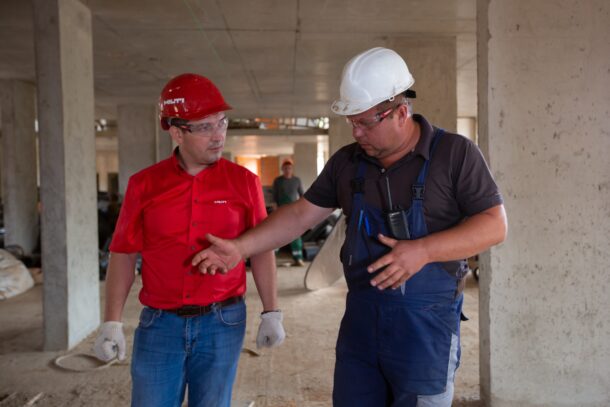No job is too big or too small for trade contractor support. Whether you need help with a quick repair or a complex installation, there are plenty of experts out there who can lend a hand. The key is knowing where to look and how to ask for help.
You know when you’re in the middle of the job and you realize that there’s more to it than you thought. Or an issue comes up and you need another person in the trades to step in and support you to get it done. In this blog post, we’ll give you some tips on getting expert support when you’re on the job.

Before You Start the Job
The first step is to do your research. If you know what type of help you need, start by looking for businesses or individuals who specialize in that area. For example, if you’re a plumber who needs help with an irrigation project, you’ll want to find an expert in that field. Once you’ve compiled a list of potential options, take some time to read reviews and compare pricing. This will help you narrow down your choices and find the best option for your needs.
Another important consideration is your timeline. If you have a tight deadline, make sure to communicate that to the expert you’re working with. If you need to get out mobile welding services then you’ll want to arrange that ahead of time to support your job. This will help them plan their work accordingly and ensure that they’re available when you need them.
Asking for Help
Once you’ve found the right expert for the job, it’s time to reach out and ask for help. The best way to do this is by being specific about what you need assistance with. When possible, include as much information as possible so the expert can give you an accurate quote.
It’s also important to be clear about your budget. This will help the expert determine whether they’re able to take on your project within your specified price range. If not, they may be able to suggest alternative solutions that fit within your budget.
How to Find the Right Person
No matter how experienced you are, there are always going to be times when you need a little help on the job. Whether it’s a tricky installation or a last-minute change order, it’s important to know where to turn for expert support. Here are four places you can go for help when you’re on the job.
1. The Internet
Whether you’re looking for installation tips or troubleshooting advice, chances are good that you’ll find what you’re looking for online. There are plenty of forums and chat rooms where trade professionals can ask questions and get answers from their peers. In addition, many manufacturers and suppliers offer online support services.
2. Trade Associations
If you’re having trouble finding the information you need online, your next best bet is to contact a trade association. These organizations represent professionals in all sorts of trades, and they can often provide members with access to experts who can offer advice and answer questions.
3. Local Suppliers
When all else fails, your local supplier is always a great resource for expert support. These businesses depend on repeat customers, so they’re usually more than happy to help out with installation issues or other problems you might be having. In addition, many suppliers offer training courses on the products they sell.
4. The Manufacturer
If you’re still struggling to find the answers you need, your last resort is to contact the manufacturer directly. Many manufacturers have customer service representatives who are familiar with their products and can offer helpful advice. You may also be able to find helpful information on the manufacturer’s website.
Calling in the Experts
Getting expert support on your next job doesn’t have to be difficult—just follow these tips! With a little research and planning, you can find the perfect individual or business to lend a hand with even the most complex projects. So don’t wait—get started today and rest easy knowing that you have the support you need to get the job done right.
No matter what kind of problem you’re having on the job, there’s an expert out there who can help you solve it. By turning to the internet, trade associations, local suppliers, or the manufacturer, you should be able to get the answers and information you need to get the job done right.




Join the conversation: